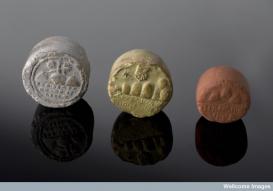This project, which I am developing into a monograph tentatively titled The Poison Trials: Antidotes and Experiment in Late Renaissance Europe, examines the role played by poison antidotes in sixteenth-century ideas about evaluating and testing drugs. Antidotes had played an important role in pharmacy from at least Greek and Roman antiquity, in part as a remedy for toxic substances and animal bites, but also because many antidotes functioned as cure-alls. By the late Middle Ages, antidotes began to take on even more significance, as poison became a common causal explanation for disease – particularly plague, but also an increasing range of ailments. Toxicity was also at the center of new theories of disease introduced by the Swiss physician Paracelsus, whose works grew in popularity in the second half of the sixteenth century. Added to these medical theories was the widespread fear of malicious poisoning in both political and popular spheres. In sum, poison was a matter of great concern, and efficacious antidotes were sought avidly.
Since ancient times, antidotes had been seen as particularly suitable for testing, since they allowed the construction of drug "trials," in which a healthy subject could be poisoned in order to be cured. These trials can be found in ancient, Arabic, and medieval medical sources, and they became increasingly popular in the sixteenth century in the context of a greater emphasis on observational and experimental approaches to therapeutic efficacy. The book portrays three overlapping ways in which antidotes played an important role in evaluating drugs in early modern pharmacy: (1) the development of trademarking and witnessing practices to ensure authenticity; (2) poison trials involving the deliberate poisoning of animal – and for a brief period, human – subjects to test the efficacy of antidotes; and (3) attempts to test the cure-all properties of poison antidotes using "anecdotal" testimonies, and the expansion of these ideas into the concept of a panacea, which became a standard hallmark of alchemical empirics from the early seventeenth century.
All three sections draw on themes of anecdotal testing versus trials; accepted and contested uses of testimony, witnessing, and communication; the role of commerce, particularly as related to the development of proprietary medicines; and the social, legal, political, and religious frameworks of poisoning and healing.

